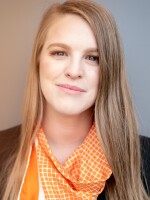When Akiya Parks first got to campus at the University of Florida, everything was new and exciting. Her mom and brother had driven her to campus and moved her into the dorms, she'd agreed to try a long-distance relationship with her high school boyfriend, she was ready to start a new chapter in Gainesville.
This was a dream come true: No one in Parks' family had ever gone to college before, and her good grades, volunteer work and commitment to her community had earned her a full-ride scholarship — nearly everything was paid for. She got a new laptop, she bonded with her roommate and she crafted her schedule.
But a few weeks into classes, she started feeling sick. At first, she thought college food just wasn't sitting well, but it wasn't the food.
She was pregnant.
"I went back to my dorm, crying. Devastated," Parks recalls. "I didn't know how college worked. Do they kick out pregnant people? I just didn't know any of the answers to my questions."
The question on everyone's mind — especially Parks — was, would she say in school? Could you go to class and raise a child?
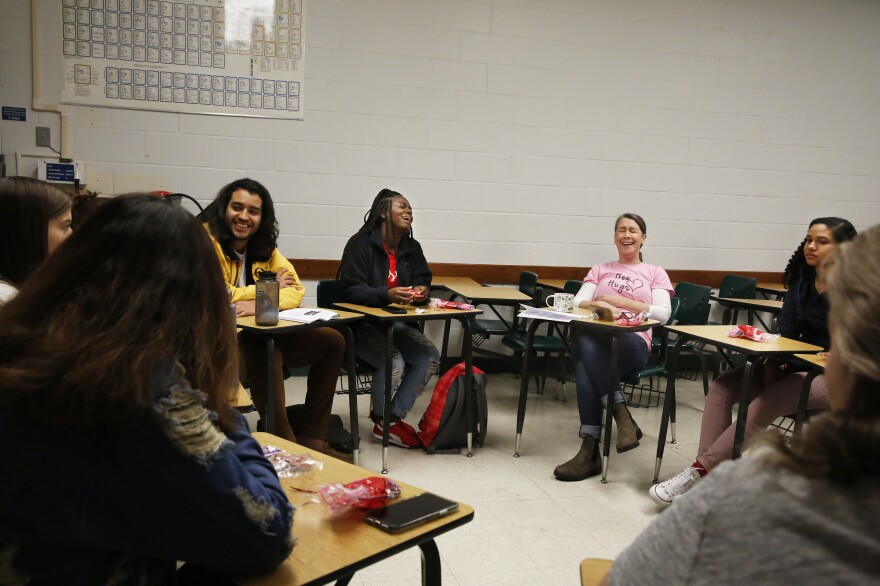
Of course, what Parks didn't know, is that nearly 4 million college students are doing this right now — that's about a fifth of all undergraduates. Student parents are mostly women (about 70 percent) they are more likely to be from low-income families and students of color. In fact, 2 in 5 black women in college are mothers, and the majority of them are single.
"These are the people we need to be investing in," says Lindsey Reichlin Cruse, who studies student parents at the Institute for Women's Policy Research. "They're really facing the odds, working hard to provide for their families and that's what this country is built on."
And the data shows that investing in these students is a good bet. Student parents have better GPAs and grades than their classmates without kids. But, they are less likely to graduate. "It's these other factors, these life factors that get in the way," says Reichlin Cruse.

What schools can do
Even though millions of college students are parents, individual schools rarely have a clear sense of which students they are — or how many are on their campus — a first step in aligning resources and creating community among students in similar situations. Once those students have been identified, says Lindsey Reichlin Cruse, "campuses need to think about becoming more family friendly."
Part of that is reimagining our perception of who goes to college.
"There is this idea in our society that you do things in a certain order," says Reichlin Cruse. You go to high school, then college, you get married, then have a baby. In reality, that's not what the majority of Americans actually do, but the idea is hard to shake.
"Being a student parent really crystalizes the order in which they went," says Reichlin Cruse. "They're uniquely positioned to really experience all that stigma."
And so colleges can take some easy steps to reduce that stigma and make student parents feel welcome and valued: They can put students and their children on posters around campus, create student parent centers, or even have kids toys in professors' offices. "Just creating a different expectation of who you're gonna see on a college campus is part of changing social norms," explains Reichlin Cruse.
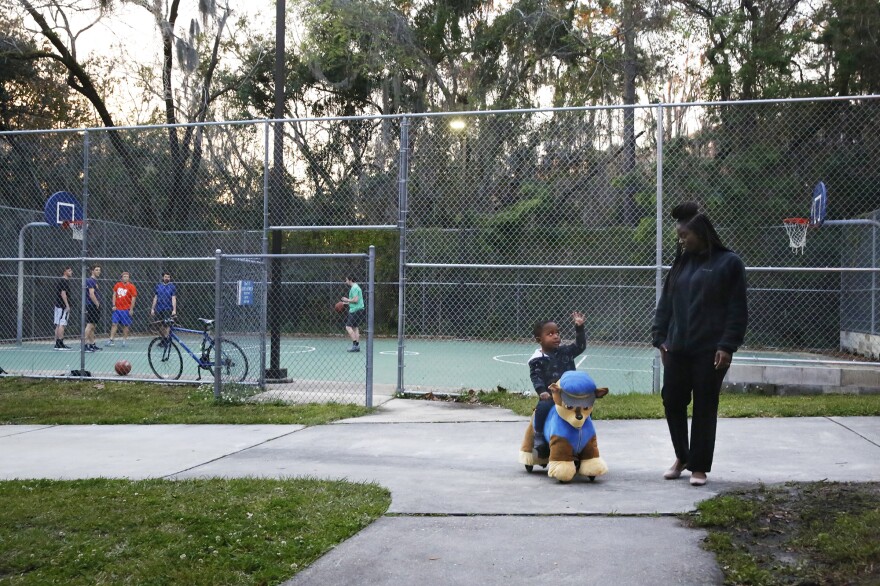
And then there is the issue of childcare — perhaps the most immediate need for parents trying to earn a degree. Students often wait to enroll in classes until they can line up childcare. Daycare hours often limit what classes they can take, or internships or job opportunities. But residential colleges are often more likely to spend money on a new dining hall than a daycare.
"Childcare is just as important, if not more important than a gym on a campus," says Reichlin Cruse, and yet the number of daycares on campus nationwide is declining — that's despite extra funding that Congress authorized in 2018.
Making it work
The University of Florida, where Akiya Parks goes, is one of the schools that does have daycare on campus, called Baby Gator. They also have lactation rooms, family housing and good student advisors. There is now a student group called GatorMoms (renamed recently from PhDMoms).
After her son was born, Parks says coming back to school as a new, single mom was one of the most difficult things she's ever done. Everything was harder. The campus daycare was too expensive and had a waitlist, so she found an affordable one off campus. She qualified for a state voucher to help defray costs, but if Caleb got sick or the daycare was closed — she'd have to scramble. "I had a few meltdowns," she says.
Friends sometimes watched him, or she'd bring him to class. Once a professor held Caleb while delivering a lecture.
But even then, there'd be moments that reminded her that in some ways this campus wasn't meant for parents. "When I did have meetings on campus and I had to bring Caleb, I'm like, 'how am I supposed to change him? There's no changing rooms.' "
Her scholarship covered a lot, including tuition and housing, but there were so many other things she needed to buy: milk, diapers and always clothes for her fast-growing baby. "Caleb, he's another human being," says Parks. "I needed more money!"
So she found a job at a cleaning company that employed students, working in between classes while Caleb was at daycare.
Research shows that student parents spend about nine hours a day taking care of their children — that's nine hours that their classmates without children can spend on homework, or studying or internships.
Parks says she has always been very diligent about time management and scheduling, but with Caleb it's extreme. "I budget our time for worst case scenario," she says. Most days, it doesn't take the entire hour to get ready to go to daycare, but on the few days it does — when there's a tantrum or a missing jacket — she's grateful she planned it.

'Mommy you did it'
Akiya Parks is now in the home stretch. She's made it to spring semester of senior year, taking the final credits she needs for a degree in Family Youth and Community Sciences. Her son Caleb is now a rambunctious, happy 3-year-old.
Home for the two of them is an apartment on campus, full of toys and books (early readers mixed with textbooks on psychology and criminal justice).
Homework and studying are done at night, mostly after Caleb falls asleep. When she tries to study before bedtime, it's usually interrupted. Today, Caleb has decided to dump out his box of books, turning the floor into a sea of brightly colored cardboard. He breaks out in the Clean Up song, dancing and singing around, but the books remain on the floor. "Stop singing and pick up the books," laughs Parks, who is on her hands and knees scooping the books back in the box, "I'm picking up more books than you."
It's easier now, Parks says, since Caleb is no longer a baby. But there are new challenges: Imagine trying to study for finals and potty-training a toddler. Tonight, there's another accident. "Did you stinky?" Parks asks, shaking her head. "I'm sorry mommy, I'm sorry!" squeals Caleb. Exasperation: "Come on," says Parks, chuckling, "Why didn't you go to the restroom?"
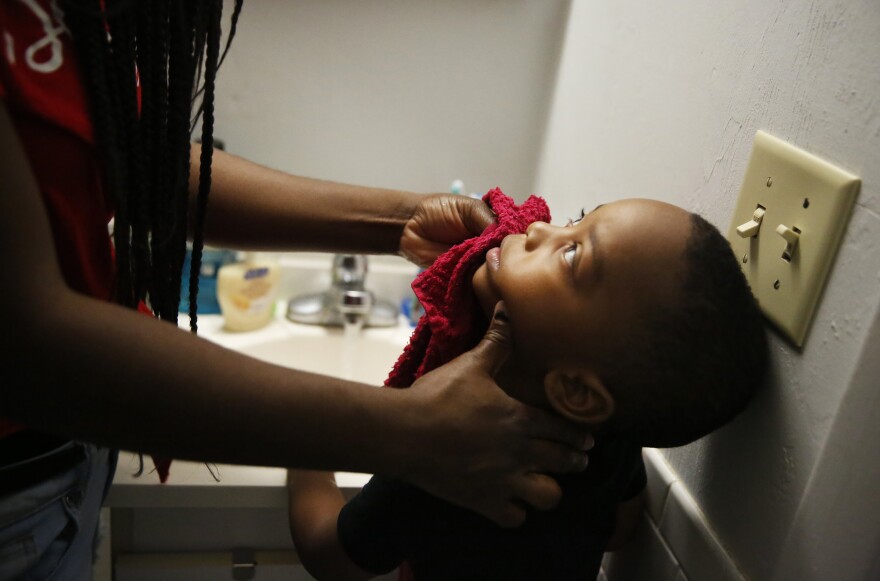
Another thing that's made it easier is her support group. She's good friends with a sophomore, Tineka Benjamin, who has a 1-year-old son, Princeton. They sometimes go to church together on Sundays, watch each other's kids and swap advice on parenting and being a student. Last semester, Benjamin watched Caleb when Parks had a night class and on President's Day, Princeton spent the day with Parks and Caleb while Benjamin was at work.
On campus and in class, Parks blends in, just another student. She relishes it. Her courses have not been a burden, she says, they are her escape. Many of her child development and psychology classes actually apply to her life. "Not that Caleb is an experiment," she explains, "but the stuff I learn in class, I go home and try it on him and see how it works."
As graduation day gets closer, Parks has been reflecting on her life in college with her son. "It motivated me more to finish," she says. "It wasn't like, 'oh man, he's gonna slow me down.' I don't want him to feel like he held me back from anything, because he didn't."
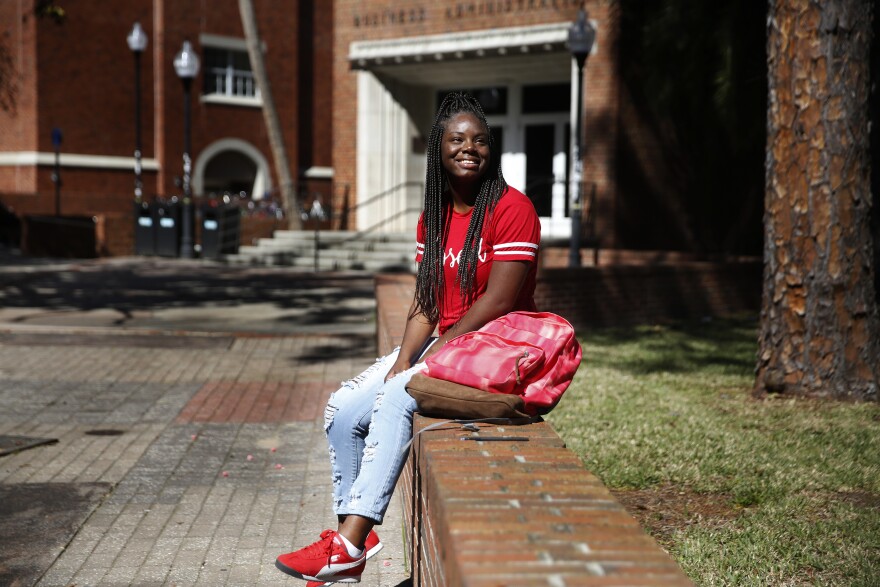
She wants to see campuses celebrating student parents like her, to help change the perception of who college is for.
"Remember, people do get pregnant," she says laughing. And those people, given the right supports, also graduate. Akiya Parks, wearing a graduation cap that reads, "Nevertheless, she persisted. #Mommy #First-gen." will walk across the stage this weekend to collect her bachelor's degree. Three-year-old Caleb will be right by her side.
Copyright 2023 NPR. To see more, visit https://www.npr.org.




